Banner campaign
Latest

Remittances to Syria: What works, where and how
Report
This study sought to understand remittance flows into Syria, and established that various Informal Value Transfer Systems (IVTS) are used, to the exclusion of the formal banking sector. Registered and unregistered hawala, courier services and family connections are used. Remittances have played an...

Review of Targeting of Cash and Food Assistance for Syrian Refugees in Lebanon, Jordan and Egypt
Report
This report is an output of a consultancy to review the process of developing protocols for targeting cash and food assistance to Syrian refugees in Lebanon, Egypt and Jordan during 2014. Under the auspices of the High Level Meeting between WFP and UNHCR (May 2014) and the WFP and UNHCR Joint Action...

Household Cash Transfer Assessment – Typhoon Haiyan Recovery Response
Report
An estimated 16.1 million people were affected by typhoon Haiyan, with 1.1 million damaged or destroyed homes and as many as 4.1 million people displaced – nearly four times as many as those left homeless by the 2004 Indian Ocean tsunami. At least 6,300 people lost their lives and another 5.9...

Key Recommendations for Protection in Cash-based Interventions
Guidelines and Tools
This document outlines the key recommendations to ensure that protection is mainstreamed throughout the project cycle for cash-based interventions.
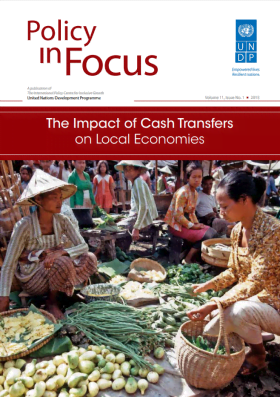
The Impact of Cash Transfers on Local Economies
Policy paper
In this special edition of Policy in Focus, leading authors and practitioners present their research on how cash transfers can impact the local economy when implemented in a developing country. The aim is to gather and review research results and evidence, obtained from various methodologies ranging from...
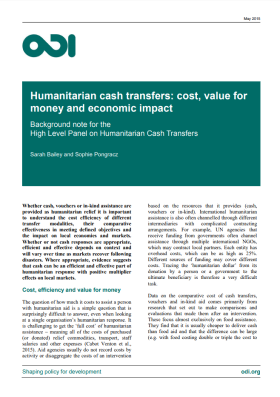
Humanitarian Cash Transfers: Cost, value for money and economic impact
Policy paper
The question of how much it costs to assist a person with humanitarian aid is a simple question that is surprisingly difficult to answer, even when looking at a single organisation’s humanitarian response. It is challenging to get the ‘full cost’ of humanitarian assistance – meaning all of the...

Maximising the Nutritional Impact of Humanitarian Food Assistance
Report
Over the past years, DG ECHO has placed a strong focus on nutrition, renewing its commitment to improve nutrition-specific programing through the release of the Nutrition Staff Working Document (2013) and the IYCF-E guidance document in 2015. However, the improvement of the nutrition status of...

Know Your Customer Standards and Privacy Recommendations for Cash Transfers
Guidelines and Tools
This report reviews how Know Your Customer (KYC) standards – rules designed to combat criminal money laundering and terrorism financing – are applied in humanitarian cash programs. The report examines the practices of aid agencies and their processing of the personal information of...
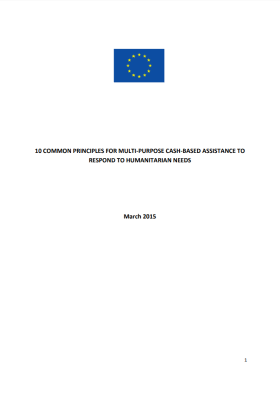
10 Common Principles for Multi-Purpose Cash-Based Assistance to Respond to Humanitarian Needs
Policy paper
These principles are intended to complement existing guidance on cash-based assistance and policy positions on those thematic areas which lend themselves to a multi-purpose approach. Donors and their partners are encouraged to take these principles into account in designing and implementing their...
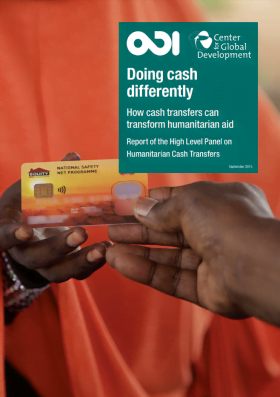
Doing Cash Differently: How cash transfers can transform humanitarian aid?
Policy paper
This report commissioned by the Overseas Development Institute highlights why giving aid directly in the form of cash is often a highly effective way to reduce suffering and to make limited humanitarian aid budgets go further. The publication, ,written by the High Level Panel on Humanitarian...

Markets in Crises: The 2010 Floods in Sindth, Pakistan
Case Study
Floods in Pakistan in 2010 inundated a wide swath of territory, affecting 18 million people and killing approximately 2,000. The disaster also affected businesses, from some of the largest factories and most fertile agricultural land in the country to small village shops. Many businesses closed, either...
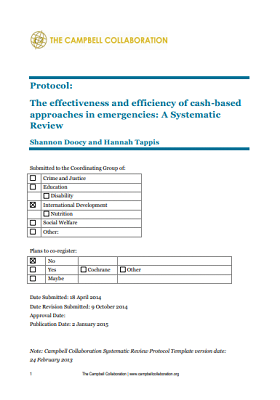
The Effectiveness and Efficiency of Cash-Based Approaches in Emergencies: A Systematic Review
Report
To access a document detailing the background, literature review, and objectives related to this review, please click here. Cash-based approaches have been used for development purposes for a number of decades, particularly within social protection interventions in low- and middle-income countries. Over...

The CALP Network At A Glance
Guidelines and Tools
The CALP Network is a global partnership of humanitarian actors engaged in policy, practice and research within cash transfer programming (CTP). Formed of a community of practice including over 150 organisations and more than 5,000 individuals in the humanitarian sector, the CALP Network is based on...
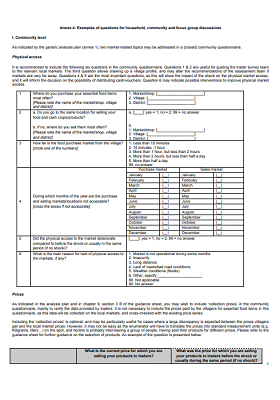
Annex 4: Examples of questions for household, community and focus group discussions
Report
It is recommended to include the following six questions in the community questionnaire. Questions 1 & 2 are useful for guiding the trader survey team to the relevant local markets. The third question allows drawing up a village profile, and may alter the recommendations of the assessment team if markets...
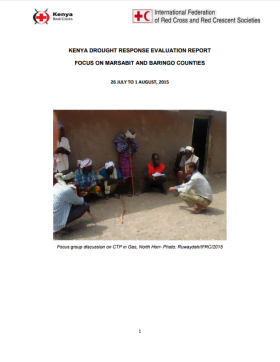
Kenya Drought Response Evaluation Report – Focus on Marsabit and Baringo Counties
Case Study
An evaluation of a drought response which involved school feeding, cash transfers and nutrition outreach activities.

Cash Transfer Programming: Feasibility and appropriateness in the context of IOCC´s humanitarian response to refugee and migrants´ crisis in Greece [Kos and Chios Island]
Report
This paper aims at assessing the feasibility and appropriateness of cash transfers programming (CTP) within the operational areas of International Orthodox Christian Charities (IOCC) and their humanitarian response activities to the refugees and migrants´crisis on the Greek Islands Chios and...

Challenges and the State of Play of Interoperability in Cash Transfer Programming
Guidelines and Tools
This study explores the factors driving the design of interoperability for Cash Transfer Programming. It outlines the rapidly changing environment in which digital services are emerging, the types of digital collaborations that could be enabled, and the key design challenges that confront effective...
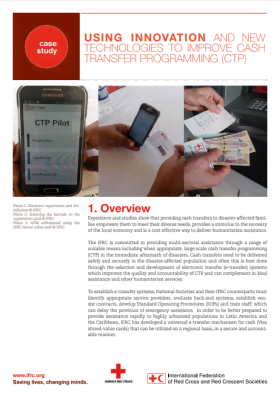
Using Innovation And New Technologies to Improve Cash Transfer Programming (CTP)
Report
Experience and studies show that providing cash transfers to disaster-affected families empowers them to meet their diverse needs, provides a stimulus to the recovery of the local economy and is a cost effective way to deliver humanitarian assistance. The IFRC is committed to providing multi-sectoral...
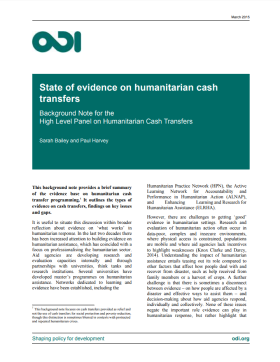
State of Evidence on Humanitarian Cash Transfers
Policy paper
The “State of evidence on humanitarian cash transfers” background note provides a brief summary of the evidence base on humanitarian cash transfer programming. The report also outlines the types of evidence on cash transfers, findings on key issues and gaps. This publication is an output of the...

Markets in Crises: South Sudan case study
Report
Not long after achieving independence, South Sudan descended into conflict, which has fuelled displacement and food insecurity.Although markets continue to function in the country, humanitarians have paid relatively little attention to market-based responses to the crisis. Looking primarily at Juba, this...